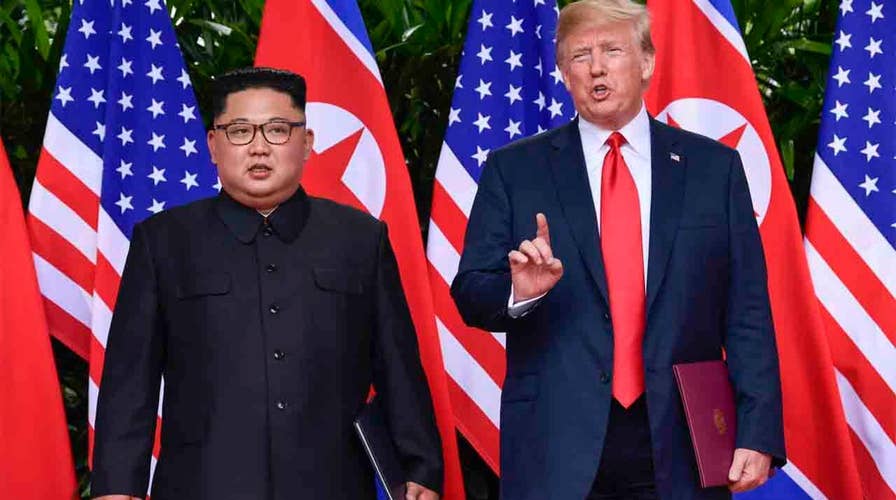North Korea says it won't denuclearize without trust in US
Asia analyst Gordon Chang says North Korea speech at the UN shows no real progress; insight on 'America's News HQ.'
Secretary of State Mike Pompeo will meet with North Korean leader Kim Jong Un in Pyongyang on Sunday as part of his trip to Asia beginning later this week, the State Department announced Tuesday.
Pompeo also will visit Japan, South Korea and China as part of his trip, State Department spokeswoman Heather Nauert announced. It will be Pompeo's fourth visit to North Korea.
Pompeo is expected to attempt to set up a second summit between Kim and President Trump, who previously met face-to-face in Singapore this past June and issued a vague statement pledging to remove nuclear weapons from the Korean Peninsula.
Since then, negotiations over when and how denuclearization would occur have been rocky, with with neither side able to agree on a starting point and widespread skepticism in the United States over whether Pyongyang is serious about renouncing an arsenal it sees as the only way to guarantee its safety.
Hopes for progress in the talks got a boost last month when South Korean President Moon Jae In met with Kim in Pyongyang for their third summit.
The summit resulted in a joint statement in which North Korea expressed willingness for a "permanent" dismantling of its main nuclear facility in Nyongbyon — if the United States takes corresponding measures — and the dismantling of a missile engine test site and launch pad in northwestern North Korea.
Earlier Tuesday, North Korea's official propaganda ministry accused the U.S. of "trying to subdue" it through sanctions, indicating that the Kim regime could see lifting such sanctions as a key bargaining chip in any talks over the future of North Korea's nuclear program. Pompeo has been a vocal advocate of maintaining maximum pressure and sanctions on North Korea until it has made clear and significant moves to denuclearize.
In a speech at the United Nations last week, North Korea's foreign minister claimed North Korea is ready to implement the agreements Trump and Kim made at the Singapore summit, but also accused Washington of failing to demonstrate its willingness to ease tensions and build mutual trust.
"Without any trust in the U.S., there will be no confidence in our national security," Ri Yong Ho said, "and under such circumstances there is no way we will unilaterally disarm ourselves first."
The Associated Press contributed to this report.





